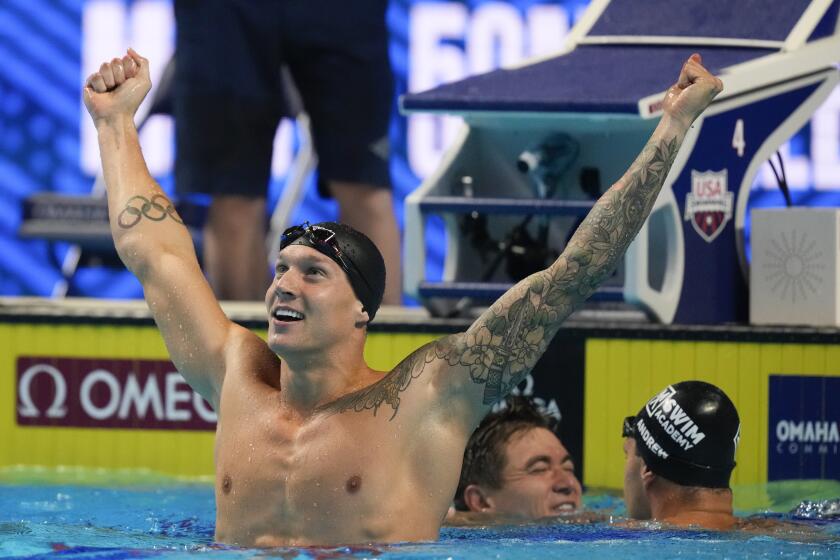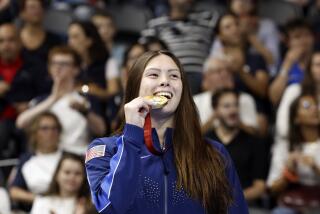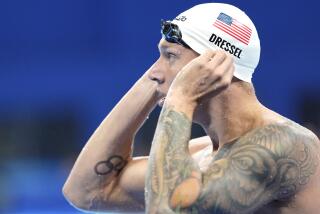Swimming in a legend’s wake, Caeleb Dressel relieved to win first individual gold
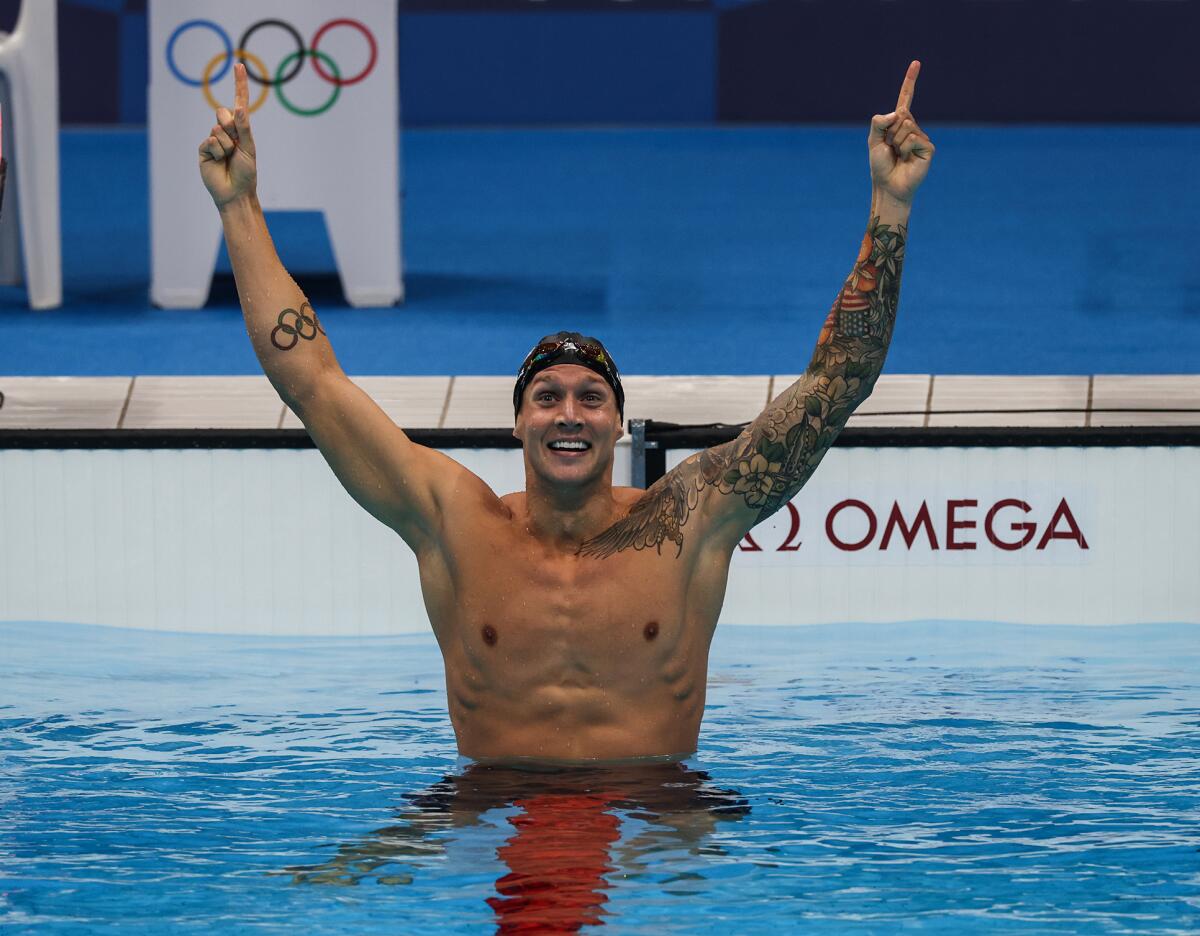
TOKYO — Relief washed over Caeleb Dressel.
Facing a television camera a few feet from the pool at the Tokyo Aquatics Centre, the newly minted gold medalist panted and choked back sobs and searched for the right words.
The swimmer carrying the burden of being the natural successor to Michael Phelps, the most decorated Olympian of all time, finally had the first individual Olympic gold medal of his career.
“I knew that weight was on my shoulders,” Dressel said later. “I’d won [Olympic] relay medals, but never individual, so it was really special.”
In the first Olympics for the U.S. without Michael Phelps since 1996, Caeleb Dressel is positioned to be his natural successor.
In one of the tightest races at the Summer Games, Dressel edged Australia’s Kyle Chalmers at the wall to win the 100-meter freestyle Thursday. Dressel finished in 47.02 seconds, an Olympic record and six-hundredths of a second better than Chalmers, the defending champion in the event.
Dressel, who owns the third-fastest time in history in the event, led after the first 50 meters. He used his sprawling 76-inch wingspan — just four inches shorter than Phelps — to tear into the water with strokes that seemed longer than the competitors in the loaded field.
“It’s different,” Dressel said of the individual medal. “I didn’t want to admit it, but now that I did it, I can. It’s a lot different. You can’t rely on anyone else. It’s just you and the water. There’s no one there to bail you out. It’s tough.”
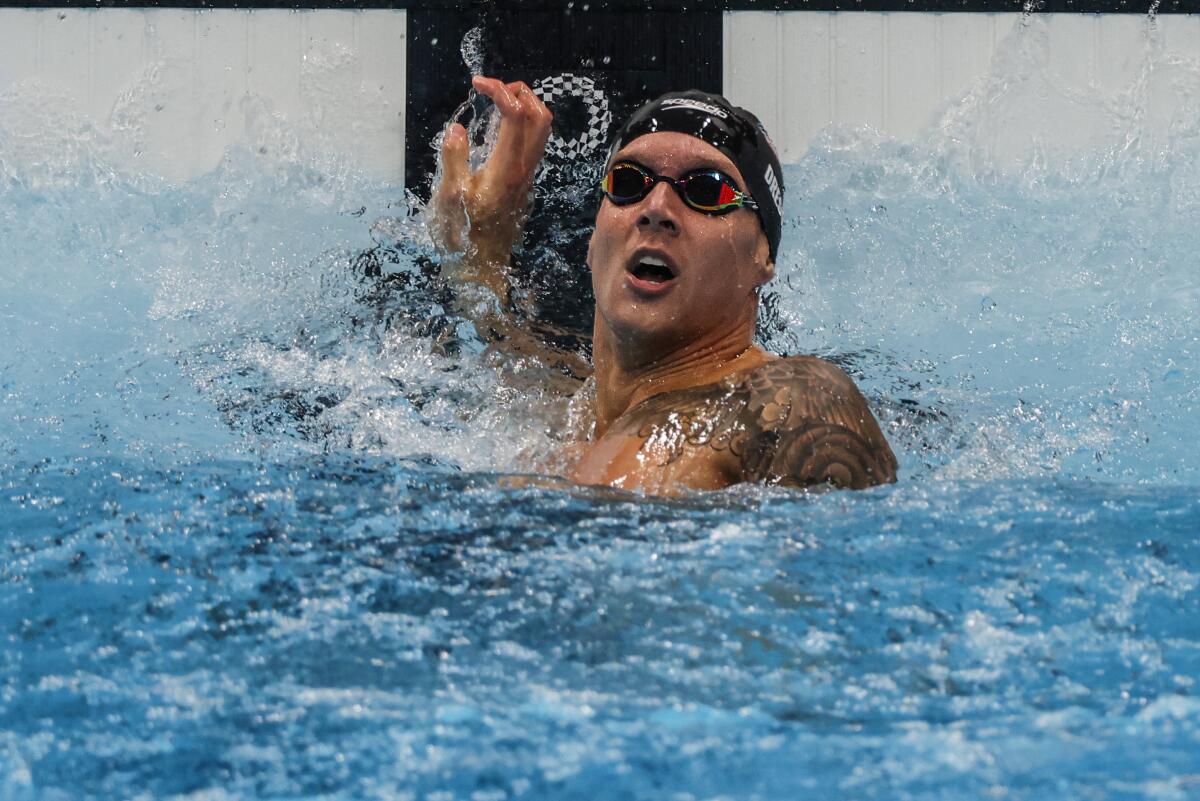
After anchoring the U.S. 100-meter freestyle relay to win gold this week, Dressel embraced the high stakes he faces each time he springs into the pool.
“I love living in the pressure,” he said. “It’s why we race. It brings out the best in us.”
But the expectations heaped on the 24-year-old’s wide shoulders are different than any other swimmer at the Games. After winning seven golds at the world championships in 2017 and a record eight medals at worlds in 2019, Dressel positioned himself as Phelps’ heir. It’s a weighty comparison. Phelps, after all, won 28 medals at the Olympic before retirement following the Rio de Janeiro Games.
Phelps, providing color commentary for NBC in Tokyo, blasted the U.S. decision to leave Dressel off the 200-meter freestyle relay in the final a day earlier.
“It’s shocking,” Phelps said. “You know, in my opinion, he’s probably the best 200 freestyler in the world. He can probably put up one of the best times that we’ve seen. Leaving him off that relay, to me, I think makes it a lot harder to win the gold medal.”
The U.S. placed fourth, breaking a streak of winning the event in four consecutive Olympics. Chalmers swam the relay for Australia — which took bronze — and perhaps the extra exertion while Dressel rested made a difference in the narrow finish of the 100 freestyle Thursday.
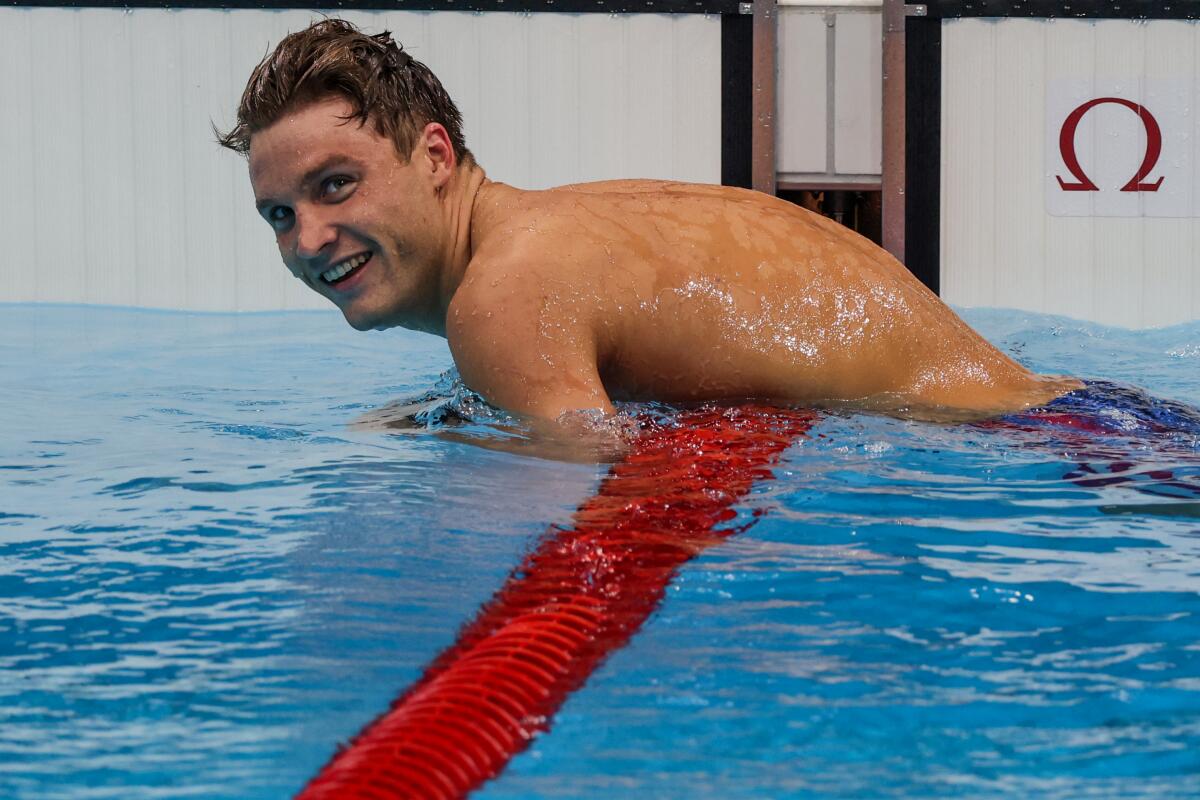
Earlier in the day, Bobby Finke delivered the most unlikely result of the competition. The 21-year-old entered the Games with the 12th-best entry time in the 800 freestyle. Advancing to the final, much less reaching the podium, appeared to be a distant possibility in the first time men have contested the event at the Olympics.
Finke’s performance in the final didn’t look remarkable at first. He fell as far back as sixth place but crept up to fourth at the final turn.
Then something seemed to take control of his body. He passed one competitor after another as U.S. coaches and swimmers in the stands jumped up and down and shouted encouragement. He touched the wall in first place in 7:41.87 to win the first distance gold for the U.S. since 1984. The time was more than six seconds better than his mark entering the Games.
“I noticed 10 meters out I was catching up a little bit of ground and that was the only motivation I needed to try and pass and get my hand to the wall first,” Finke said.
He swam the final 50 meters in 26.39 seconds — his fastest split of the race by more than two seconds — to beat Italy’s Gregorio Paltrinieri by two-10ths of a second.
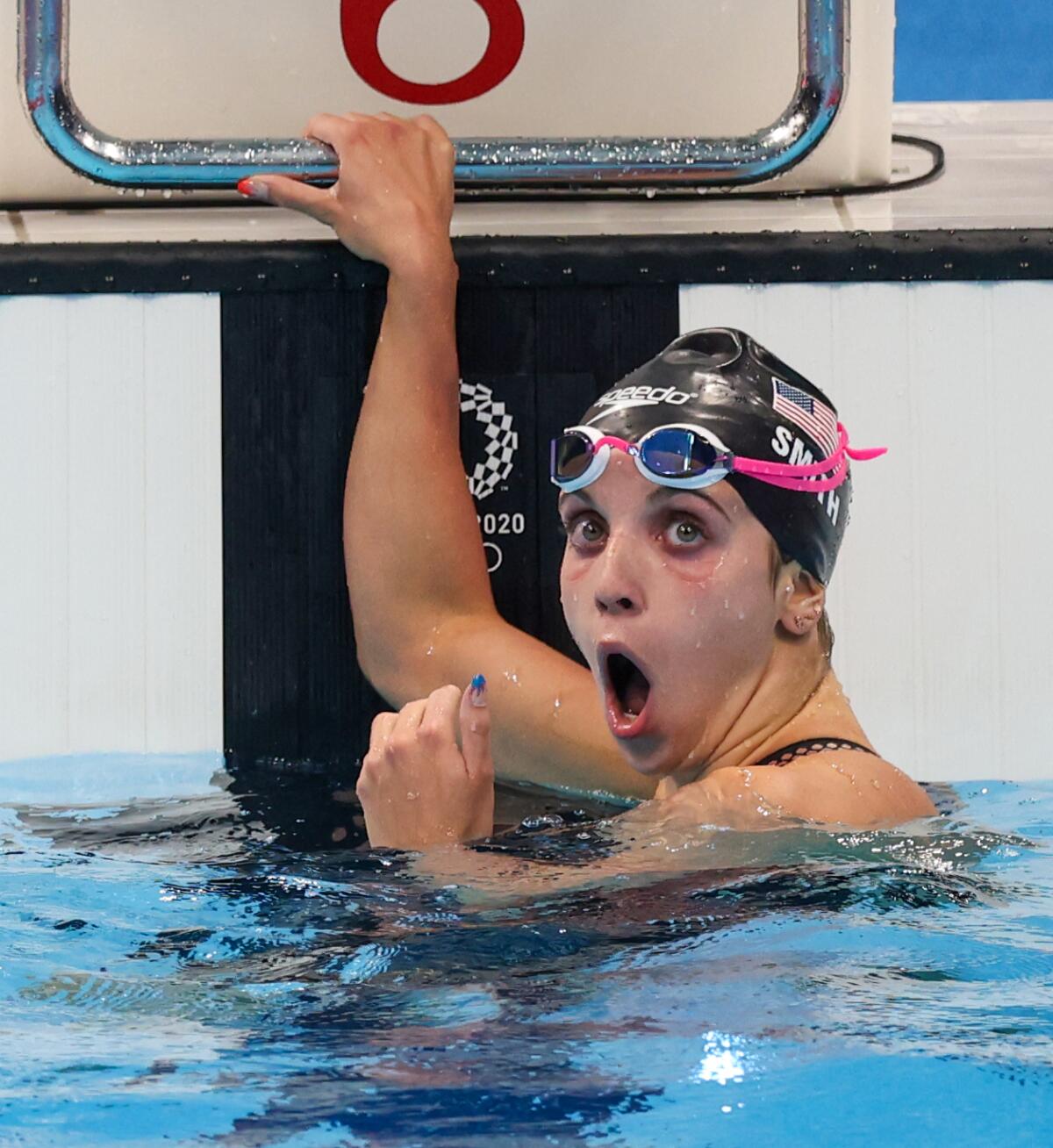
In other finals, Regan Smith (silver) and Hali Flickinger (bronze) gave the U.S. women their first medals in the 200 butterfly since 2000. And Katie Ledecky anchored the 200-meter freestyle relay that took silver. The finish gave Allison Schmitt, who swam a leg on the relay, the 10th Olympic medal of her career.
Dressel will likely add to his gold medal haul in the coming days. His packed schedule still includes the 100 butterfly, in which he owns the world record, and the 50 freestyle, in addition to likely joining two relays. That gives him a chance to win a Phelps-like six golds.
But that’s in the future. For now, the relief of finally owning an individual gold is enough.
More to Read
Go beyond the scoreboard
Get the latest on L.A.'s teams in the daily Sports Report newsletter.
You may occasionally receive promotional content from the Los Angeles Times.
